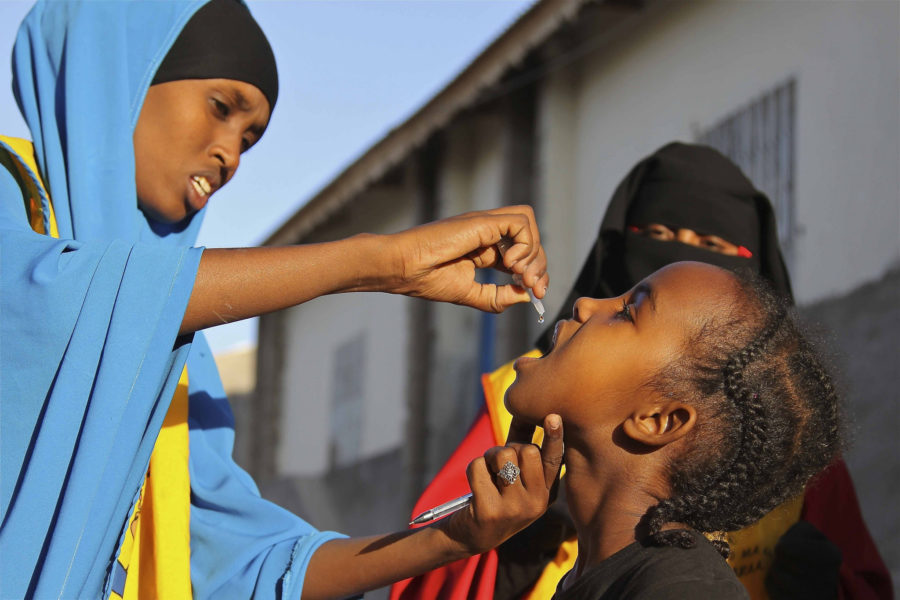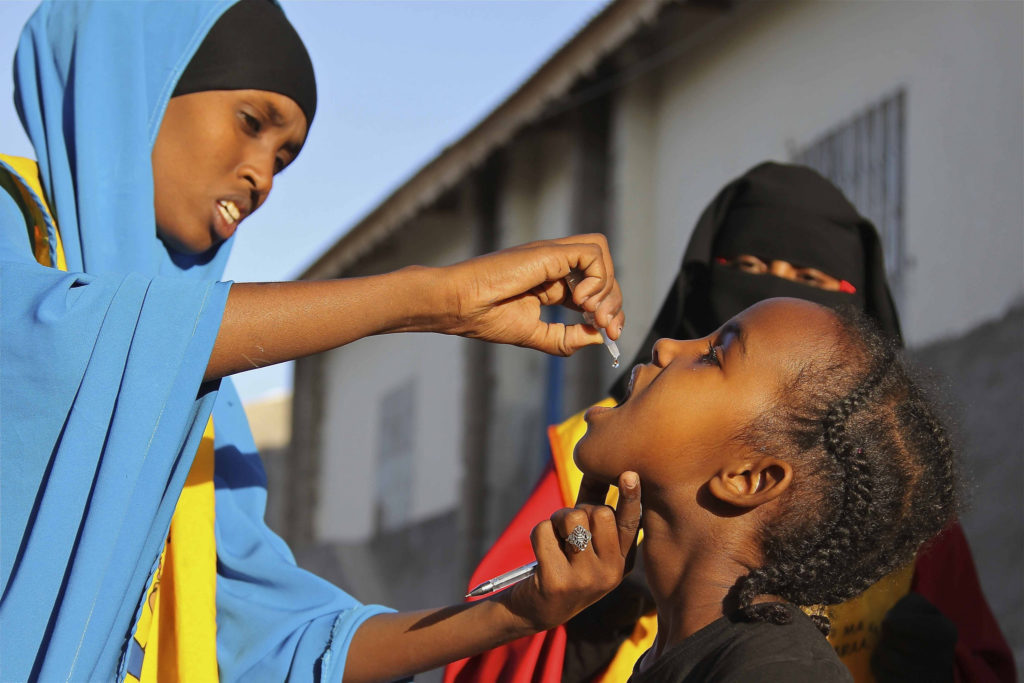Polio cases detected in Somalia-WHO


Three cases of a polio strain have been detected in Banaadir region, the World Health Organisation (WHO) has said calling for increased vaccination campaigns.
WHO said Friday Circulation of vaccine-derived poliovirus type 2 (cVDPV2) was confirmed following tests from environmental samples collected on 4 and 11 January 2018, in Banadir region. The UN agency noted these latest isolates are genetically linked to the cVDPV2 strains collected from environmental samples in the same province on 22 October and 2 November 2017.
No associated cases of acute flaccid paralysis (AFP) have been detected, WHO added. WHO declared Somalia last August polio-free in three years but called for sustained immunization efforts to keep the paralyzing disease at bay.
According to the WHO, cVDPV takes a long time to occur but does when it has been allowed to circulate in under-ummunised and un-immunised populations for period of at least 12 months. It can also occur when routine or supplementary immunization activities (SIAs) are poorly conducted and a population is left susceptible to poliovirus, whether from vaccine-derived or wild poliovirus
Hence, the problem is not with the vaccine itself, but low vaccination coverage, WHO notes. If a population is fully immunized, they will be protected against both vaccine-derived and wild polioviruses.
“The detection of this cVDPV2 strain underscores the importance of maintaining high levels of routine polio vaccination coverage at all levels to minimize the risk and consequences of any poliovirus circulation,” WHO said Friday adding the insecurity in some parts of the country was a major obstacle in maintain high immunity among the population.
It notes two large-scale immunization campaigns (SIA) in line with internationally-agreed guidelines have been implemented, in Banadir, Lower Shabelle and Middle Shabelle regions had been conducted since the 2017 isolates were detected.
The health organisation said it will roll out a third large scale impunisation campaign this month and ‘further response based on evolving epidemiology and ongoing risk assessment is being evaluated. Surveillance for AFP is being strengthened.
GOOBJOOG NEWS